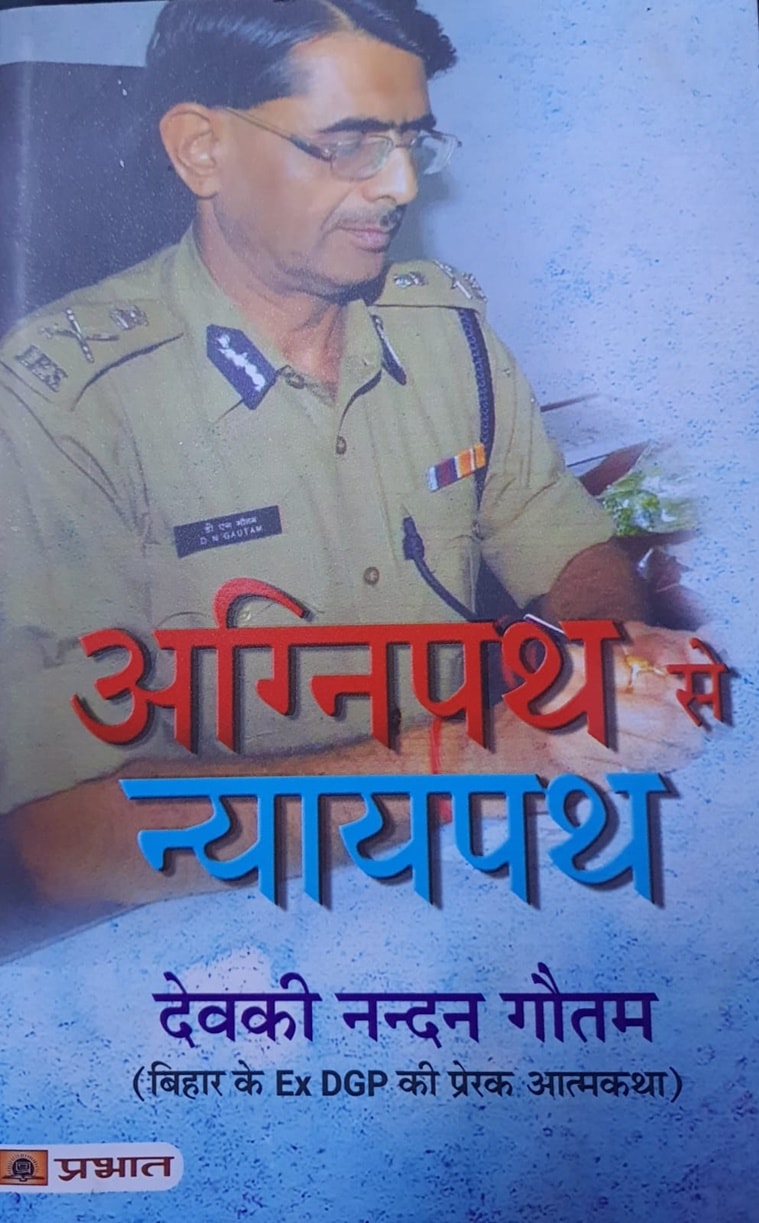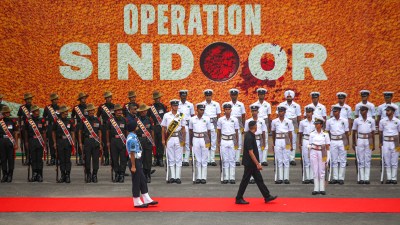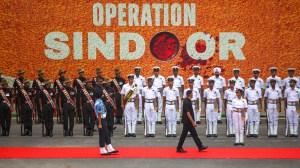Lalu Prasad Yadav wanted to implement police reforms and improve the law and order situation in Bihar after becoming the chief minister in 1990 but could not do so because of his growing mass appeal and hangers-on, according to former director general of police (DGP) Devaki Nandan Gautam, better known as DN Gautam.
In his autobiography titled ‘Agneepath Se Nyaypath’ by Prabhat Paperbacks, the former DGP also says that though incumbent Bihar Chief Minister Nitish Kumar was instrumental in implementing police reforms in the state during his previous terms, he had kept Gautam’s proposal to set up anti-terrorism squad (ATS) police stations in abeyance. Later when Bodhgaya and Gandhi Maidan blasts took place, the force was found wanting, he writes.

The 368-page book, divided into 60 chapters, details Gautam’s journey from Belhari village of Mahoba to the office of Bihar’s top police officer.
Story continues below this ad
Gautam, who served as the Bihar DGP from July 2008 to July 2009, remembers he was rescued from drowning in a pond by his elder sister in his childhood. He says it was his mother who motivated him as his father was ill and the family struggled financially. After qualifying the UPSC examination, he completed his masters in mathematics.
Gautam’s first posting was in the Maoist belt of Sherghati, Gaya. He recalls how the police force found it very hard to motivate themselves due to a lack of basic infrastructure. His stint as additional superintendent of police (ASP), Madhubani, gave him the first feel of political pressure. “Radhanandan Jha, one of the most powerful leaders in the Dr Jagannath Mishra government, got me in his car and talked about his clout and narrated how every police transfer and posting in the area was at his mercy. Then, he asked me not to interfere with the functioning of a police station in-charge. After he concluded, I said ‘nothing of what you want would happen. This area is under my domain and everything would happen as per law’,” he writes.
This terse conversation sent a message to Jha, who later became friends with Gautam and as Bihar Assembly Speaker dealt sympathetically with a privilege motion matter involving Gautam.
Gautam, known for his successful operations against dacoits of Rohtas during his stint as the SP and later as deputy inspector general (DIG), reveals how a powerful bureaucrat (who later turned politician) in the Nitish Kumar government had got him transferred from the additional director of police (ADGP), Special Branch and Intelligence, to the low-key position of ADGP (modernisation) just because he had transferred a lax assistant sub-inspector (said to be close to the bureaucrat) from his office to a Patna police station.
Story continues below this ad
 Gautam’s autobiography is titled ‘Agneepath Se Nyaypath’ by Prabhat Paperbacks. (Express Photo)
Gautam’s autobiography is titled ‘Agneepath Se Nyaypath’ by Prabhat Paperbacks. (Express Photo)
In the former DGP’s opinion, the inept handling of a simple fight led to the 1980 Parasbigha massacre in Jehanabad, in which more than three dozen people were killed. Discussing the police’s complicity in booth-capturing, he writes that a DIG had tried to visit him at a polling booth in Harlakhi (Madhubani) in 1980 and threatened to suspend him if he exceeded the brief. Gautam says the administration succeeded and also mentions how the same DIG vindicated his stand after shunting posting a few months later.
On his stints as Rohtas SP and Shahabad Range DIG, Gautam states that the police force needed a morale boost to take on the dreaded dacoit gangs. He reveals that more than six MLAs were against any police attempt to arrest dacoit Ramchandra Koeri, who was eventually killed during his tenure as Rohtas SP in 1982. During his tenure as Shahabad Range DIG, another dreaded bandit Toofani Paswan surrendered before the police.
In the book, Gautam also talks about an anonymous emotional letter from a criminal who had changed his mind and returned the money he had taken to kill the police officer when he posted as the Rohtas SP.
Gautam praises Karpoori Thakur, who, as the Opposition leader in 1985 appreciated the police force after a firing incident in Munger, contrary to the usual practice of criticising it in such incidents. He says that Thakur said that the police had to open the fire after a station was besieged and attacked by a mob following allegations of gangrape against some policemen. Thakur said that the state needed officers like Gautam and KB Saxena, he writes.
Story continues below this ad
In the book, the former officer also shares his memories from the days of Emergency. He recalls the famous blank editorial by The Indian Express as a mark of protest against Indira Gandhi’s censorship.
Gautam appreciates Nitish Kumar for promptly taking his suggestion to give advance to every police station for sundry expenses, setting up a separate board to appoint constables that paved way for mass appointments. But he also mentions that Nitish Kumar carried out transfers in the state police without keeping him in the loop and when he was on leave.


 Gautam’s autobiography is titled ‘Agneepath Se Nyaypath’ by Prabhat Paperbacks. (Express Photo)
Gautam’s autobiography is titled ‘Agneepath Se Nyaypath’ by Prabhat Paperbacks. (Express Photo)






